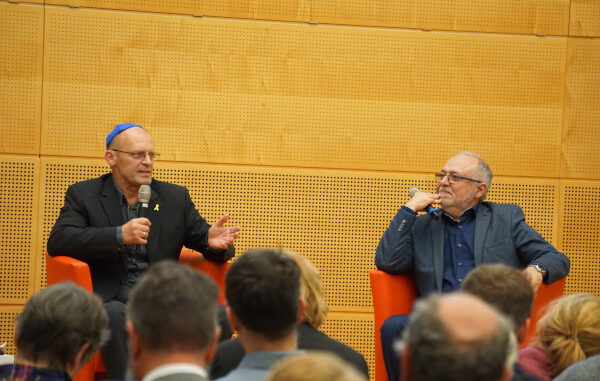
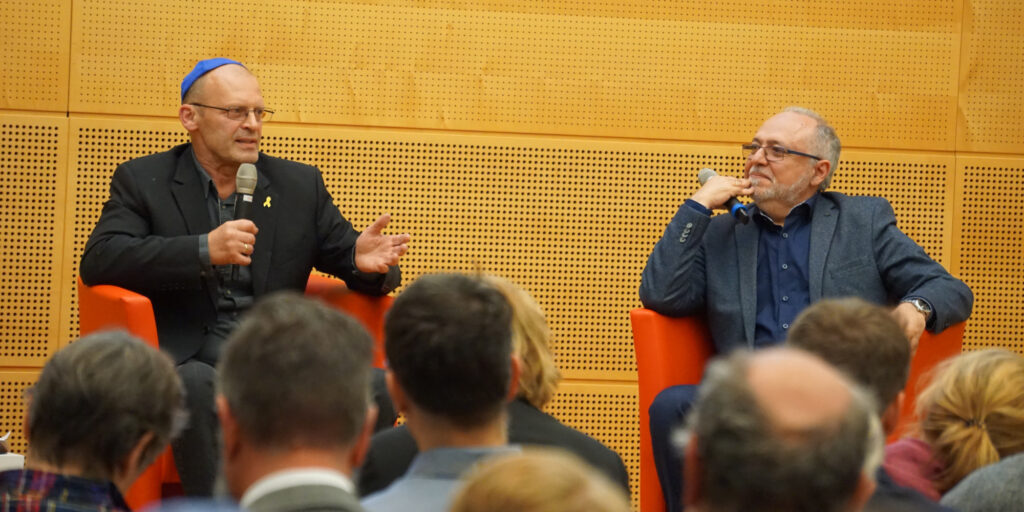
One year after the massacre by the radical Islamist Hamas in Israel, representatives of the Jewish associations came together with representatives and guests of state politics in Kiel, Schleswig-Holstein, Germany. They draw a sad picture.
“It was like a tsunami,” recalls Igor Wolodarski when he saw the television images of the massacre carried out by Hamas terrorists in Israel on October 7, 2023. 1,139 people were murdered and over 200 others were deported to the Gaza Strip. For the representative of the Schleswig-Holstein Jewish Community it was clear: “It was a breach of civilization for the first time since the Holocaust.”
Walter Blender, who heads the state association of Jewish communities in Schleswig-Holstein, was thinking primarily of his daughters, who live in Israel. “You could feel that this was just the beginning,” he recalls in view of the television images of Hamas terrorists loading Israeli women onto trucks. “People were already looking to see if their own daughter was among them. You can feel the paralysis, the paralysis of shock.”
Muslims in Schleswig-Holstein refuse to talk
Blender reports that he wanted to take part in a dialog as a Jewish representative just last week – together with a Christian and a Muslim. However, no one from the Muslim side was willing to talk about the events in the Middle East. Only the Ahmadiyya community, which is controversial within the Muslim community itself1, is taking part in such talks in general.
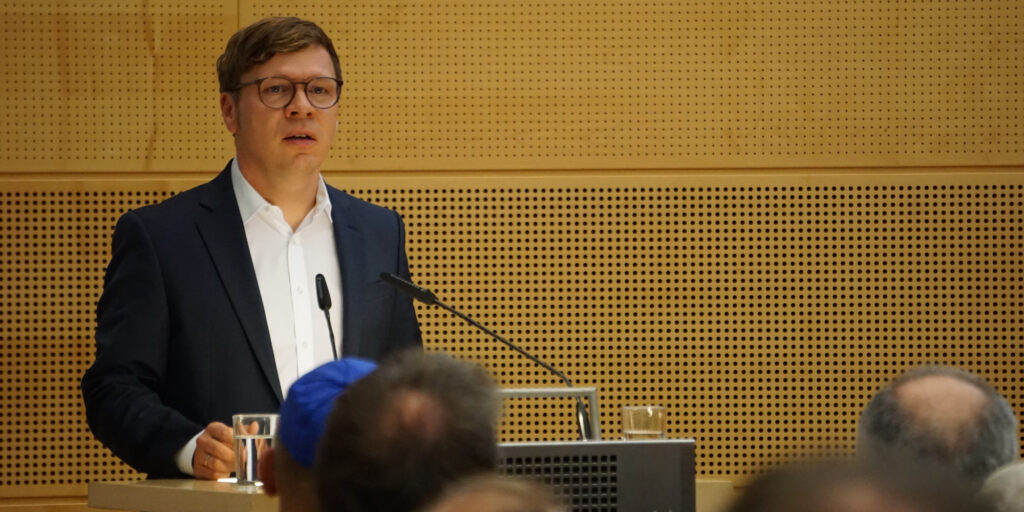
Christian Meyer-Heidemann, the state representative for political education, describes a similar experience. For today’s event, they had tried to find someone from Schleswig-Holstein with Palestinian roots to give his view of things. “We did not succeed.”
The author of this text was also unable to find a Palestinian voice for the follow-up report. Inquiries to associations and the Palestinian embassy remained unanswered.
Strategies against anti-Semitism
“We need to do more to educate people about history and religions,” demands Walter Blender. “Something must be done! It’s not just a danger for us, but for democracy.” Blender also wants this to be understood as a criticism of the media. He is supported in his opinion by Wolodarski. According to both of them, journalists often know too little about Jewish culture.
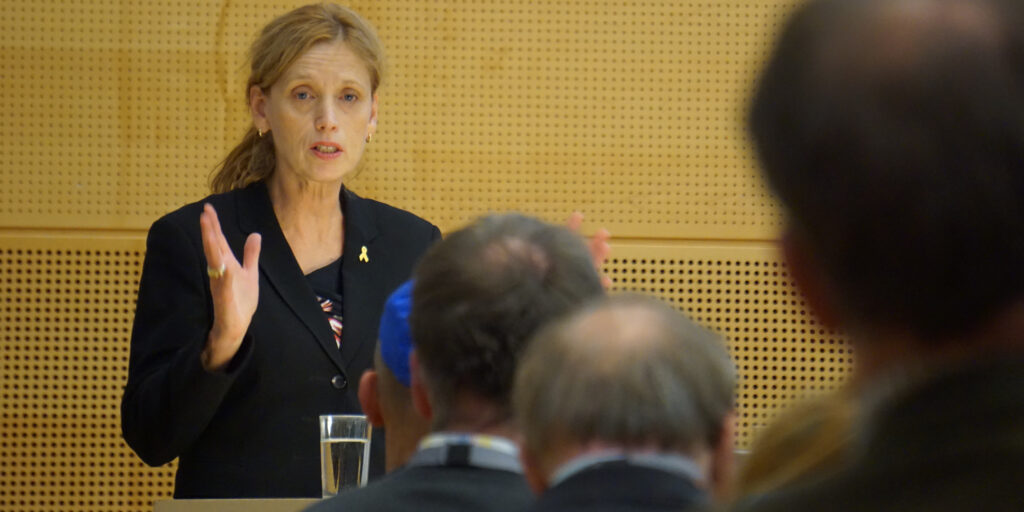
What moves Jews in the wake of rising anti-Semitism is the indifference of the public, explains Education Minister Karin Prien. “Our culture of remembrance has taught us that people looked the other way back then too.” It is therefore important to look and listen to people.
Cathrin Lippert-Shalev is also among the guests on the podium. Born in Schleswig-Holstein, the Israeli works as a teacher in Haifa at the local Center for German and European Studies. “Ignorance creates fear!” which is why she also argues for an open minded society and for an education that makes people eager to learn more about different cultures. “It’s about creating community. That has to start in kindergarten.”
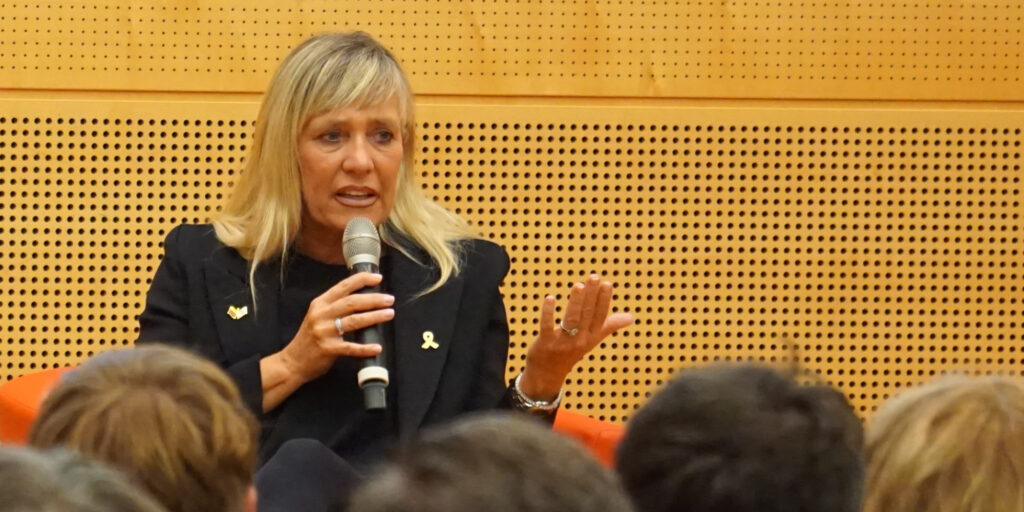
Jewish life is always a target
According to Lippert-Shalev, it is mandatory in Israel to plan for a bunker or shelter when building a house. She is reluctant to let her children stay overnight with friends who live in older houses without bunkers.
One of her sons had wanted to visit the Nova music festival on October 7, where the Hamas terrorists carried out one of their massacres. “However, he then decided not to go. His friends only survived because a terrorist had a jammed gun.” However, children of their friends were murdered there. “I often miss the condemnation of this barbaric, inhumane act on October 7. It were not just the terrorists. Cameras have shown the civilian population took part too.”
These are the circumstances that Wolodarski also criticized during his panel discussion with Walter Blender when he said in relation to recent events in Germany: “It leaves me speechless how the death of over 1,000 Jews was celebrated with sweets and joy.”
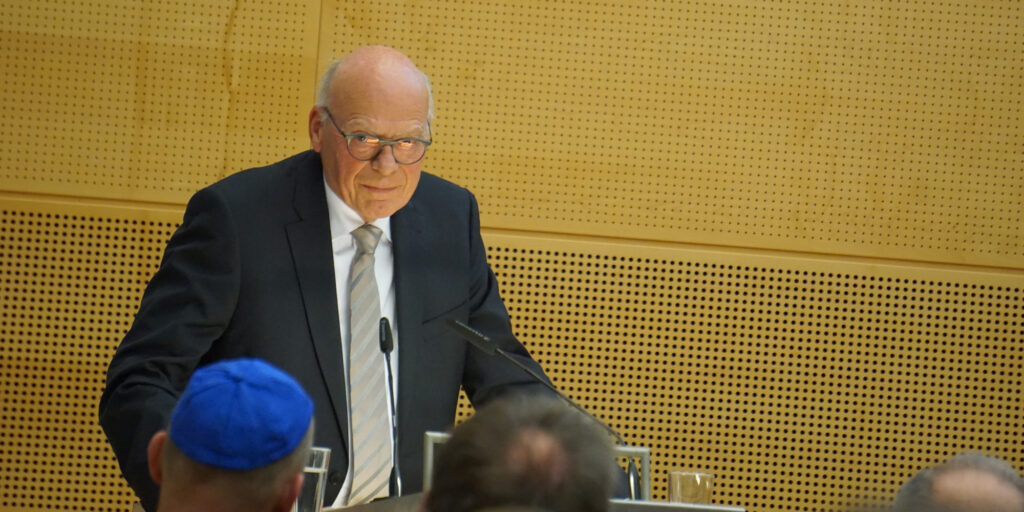
Walter Blender recalls the 1990s, when it was still possible for a rabbi wearing a kippah without any problems when traveling from Berlin to Kiel by train. Today, there are downright no-go areas for Jews with kippahs – especially in Muslim-influenced districts. „Nobody organizes Jewish stands and activities at city and cultural festivals anymore, because they are a potential target for attacks.”
Recognizing victim-offender reversal
In his closing words, Gerhard Ulrich speaks of October 7 as the beginning of the spiral of violence in the Middle East. “We also think of those who endure endless suffering. But by concealing the origin, we are creating a perpetrator-victim reversal.”
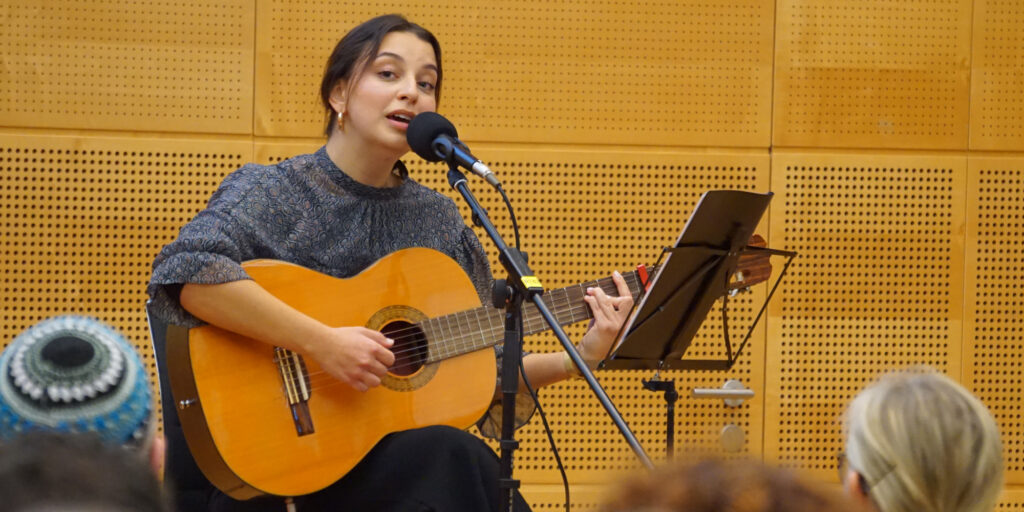
Living Jewish culture
The individual speeches, which are condensed thematically rather than chronologically, were linked by musical contributions from Hamburg musician Alexandra Lachmann. She performed songs that were both thought-provoking and hopeful. These included pieces such as “Acheinu”, “Ohse Shalom” and “Mir Leben Eybig”.
- In fact, the Ahmadiyya community itself faces religious persecution by Islam in many places. ↩︎
